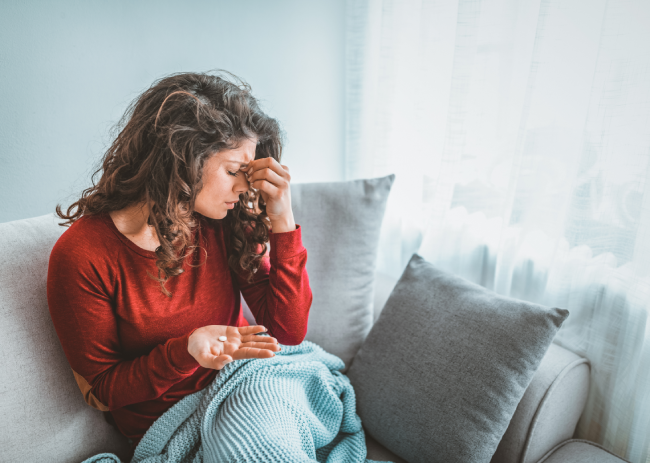A migraine is a throbbing headache that can last for hours or even days. The pain is often so severe that it interferes with your everyday activities. Some people also have other symptoms, such as nausea, vomiting, and sensitivity to light and sound. Migraines can be extremely debilitating. There is no cure for migraines, but there are treatments that can help lessen the frequency and severity of attacks.
The Causes of Migraines
A migraine is a headache that can cause a throbbing sensation in one area of the head. It is often accompanied by nausea, vomiting, and sensitivity to light and sound. Migraines can last for hours or even days. The exact cause of migraines is unknown, but they are thought to be caused by a combination of genetic and environmental factors.
There are several theories about what causes migraines. One theory suggests that migraines are caused by changes in the brainstem and its interactions with the trigeminal nerve, a major pain pathway. Another theory suggests that migraines are caused by abnormal activity in the brain’s blood vessels. Certain foods, drinks, or other substances may also trigger migraines.
The Different Types of Migraines
There are several types of migraines: classic migraines, common migraines, aura migraines, and hemiplegic migraines. Classic migraines are the most common type, characterized by throbbing pain on one side of the head. Common migraines are less severe than classic migraines and don’t usually have aura symptoms. Aura migraines are characterized by visual or other sensory disturbances that happen before the headache pain begins. Finally, hemiplegic migraines are the rarest and most severe type of migraine, and they are characterized by temporary paralysis on one side of the body.
Simple Tactics to Help You Cope with Migraines
Start by keeping a migraine diary. Note when you have a migraine, what you were doing that day, and what you ate. This can help you identify possible triggers.
It is possible to treat migraines with sumatriptan. Other over-the-counter pain relievers can be helpful for milder migraines. If over-the-counter medications don’t work, your doctor may prescribe something stronger.
If you suffer from migraines, you know how debilitating they can be. Still, there are some simple things you can do to help reduce the frequency and severity of your migraines.
- Change up your diet. Some foods can trigger migraines, so it’s essential to identify your triggers and avoid them. Keep a food diary to help you identify patterns.
- Make sure you’re getting enough sleep. Migraines can be triggered by fatigue, so aim for 7-8 hours of sleep each night.
- Relaxation to reduce stress. Try relaxation techniques or exercise to manage stress. Stress is a common migraine trigger, so finding ways to reduce stress can help reduce your migraines.
Many simple tactics can help you cope with migraines. From over-the-counter medications to cold compresses, there is bound to be something that can help you find relief. If you suffer from migraines, speak to your doctor about what treatment options are available to you.
Katie writes for F and B Recipes. She lives in New York with her dog Coco. When not writing, she can be found baking (and eating) chocolate chip cookies.

